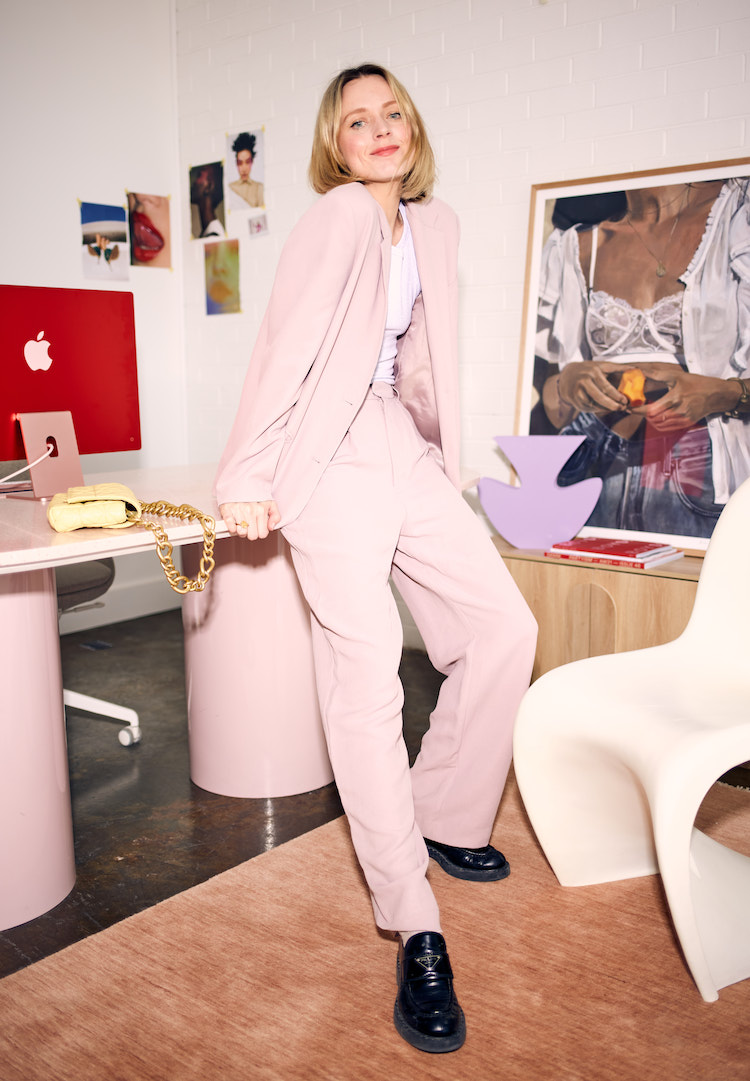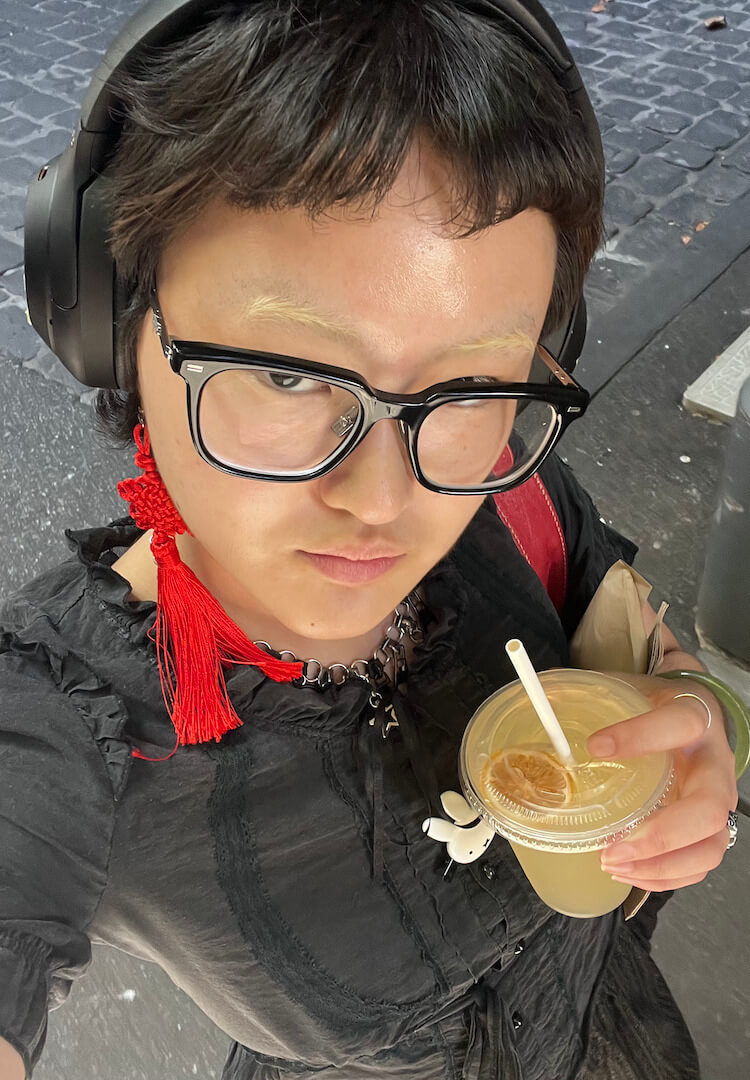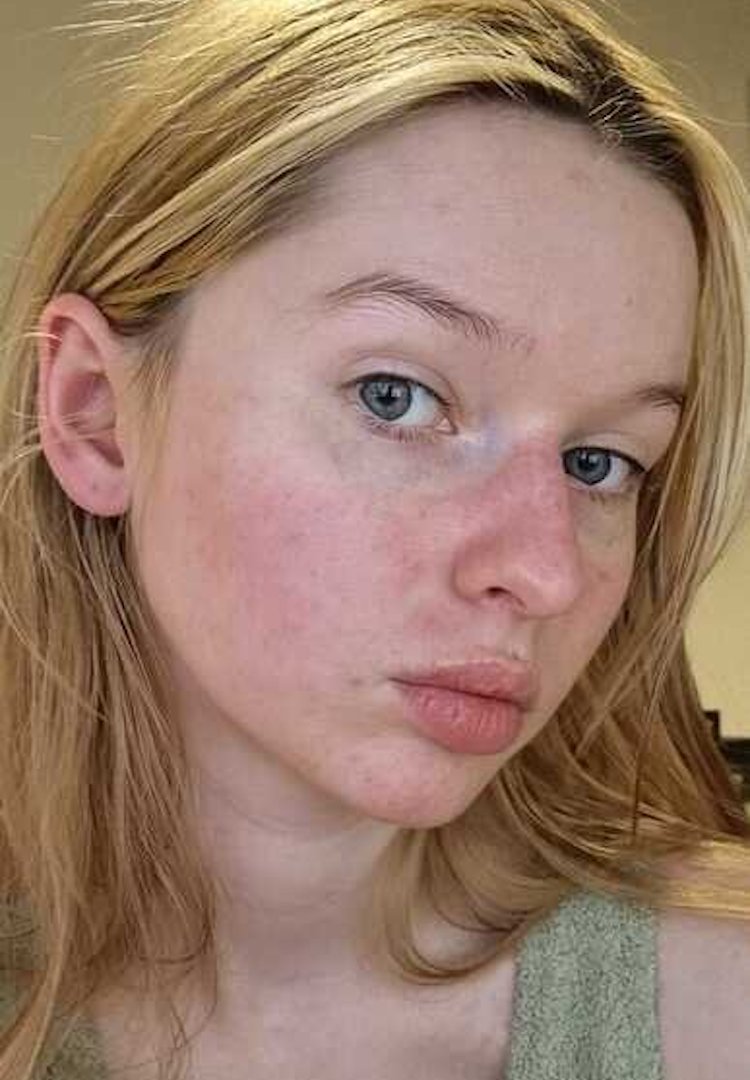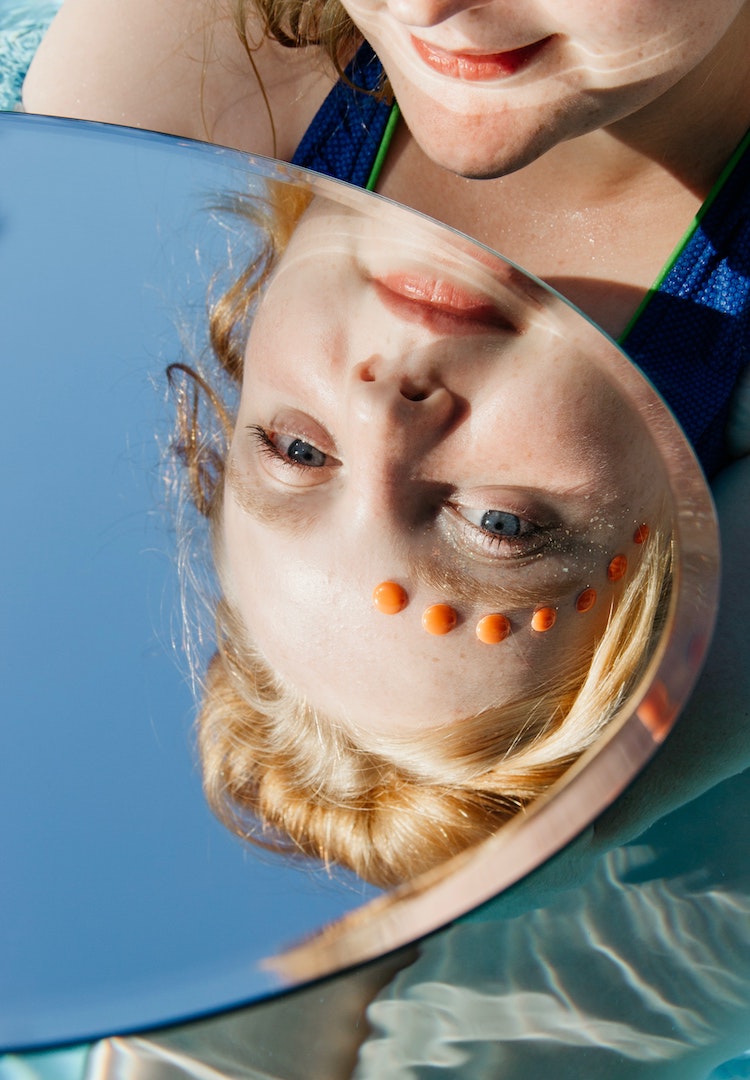I asked a female plastic surgeon all my burning questions
WORDS BY GENEVIEVE PHELAN
“It is about supporting body positivity. For some people, the road to achieving this is through surgery. It is not about exploiting their vulnerability.”
It was a few weeks ago that my housemate and I tuned in to Mirror Mirror, the two-part Australian body image and societal crisis documentary led by none other than marketing guru, Todd Sampson. I think Mum told me to “Watch it, Gen!” and with nothing much else to do in lockdown, coupled with an unhealthy obsession with my weight and appearance, I obeyed.
The doco delved into our deepest and darkest insecurities, fuelled by the ever-increasing pressures of being ‘that girl’ and other superficial ideals fed to us via social media and global marketing schemes every.single.day.
Want to read more about how others navigate the world? Try our Life section.
After our two-night watching ceremony, we agreed that the leaking indentation pits on a young 20-something girl’s body after she underwent fat-reduction surgery were permanently seared into our minds. Todd told a cautionary tale, showing us concerningly thin and scarily muscular sycophants to the ‘wellness’ machine. Plastic surgery was a recurring theme, especially in part one.
I’ve never thought about having a cosmetic procedure done. Not seriously. Nor do I shun anyone who wants to or has already. I think it was drummed into me from an early age not to want to significantly alter my physical appearance. My late pop – the wisest man I’ve ever met and ever will – gravely warned me against “touching [my] eyebrows”.
I nodded in agreement, but this was a lie. My brows have since been waxed and tinted and laminated and plucked to better enhance or ‘frame’ my face, as beauty standards tell me. I wish I never touched them with more than a tweezer here or there.
The only thing I’d consider changing right now is my nose… or my breasts… and I wish my upper arms were more toned. Actually, I have thought about it more than I’d like to lead on. I have teeny tiny B cup (on a bra-holstered day) boobs and an aggressively arched (IMO) nose.
I might entertain the idea for a moment or two, but I’d never go through with either procedure because a) the ordeal and b) the money and c) the emphasis I place on those things versus other things in my life I choose to care more about. That’s totally subjective and just how it is for me. Everyone is entitled to make whatever alterations or changes to their body, because it’s their body.
With friends casually mentioning lip flips and tummy changes and filler in the future and so forth, I jumped at the opportunity to ask practising plastic surgeon Dr Kelly Thornbury a few curious questions.
What does a plastic surgeon really think about cosmetic enhancements?
An authority and expert in the human body, Dr Thornbury has seen trends rise and wane, and with them dramatic morphings of faces and breasts and buttocks. She also works in a highly polarising and male-dominated field, as well as being a mother. This particular combination of interests and life-defining facts piqued my interest. What does a mother, who is simultaneously a plastic surgeon, tell her child when they say they’re seriously considering editing their appearance?
“I am a mother. I have two daughters,” says Dr Thornbury. “As with any mother raising daughters in this environment, I am very conscious of their own attitudes toward themselves and their bodies. We are dealing with so much more than previous generations. My fundamental approach is to try and raise confident, resilient daughters who are educated and able to make their own decisions and navigate life.
“If either of them had a significant concern that was truly having a negative impact on their lives and surgery was able to address this and improve their quality of life, then I would support this. It is a very personal decision. I am pro-choice but [it’s important to] do it in a safe way.”
Just like we scoff or guffaw at girlfriends who claim they’re absolutely augmenting this or reducing that one day, it can be hard to acknowledge the changes the people we love want to make to bodies and faces that are utterly perfect to us. They’re perfect to us because we know the person beneath all of that. But when the conversation is flipped and we consider our own bodies, critique immediately ensues.
Why plastic surgery?
I really wanted to know why Dr Thornbury chose her career path, aside from the obvious answer (a steady income stream and a passion for medicine). Turns out this is a stereotypical and surface-level assumption to make. There is far more involved in plastic surgery as a profession than beauty-filter-reminiscent enhancements and BBLS.
“I moved to Sydney as a junior doctor and rotated through medical and surgical terms. I found surgery to be the most appealing and eventually found plastic surgery. I was engaged by the complexities of this field – microsurgery, burns, trauma, oncology, aesthetic, paediatric. All aspects are very rewarding as a surgeon. There is a finesse about plastic surgery and its application that I really respect. My approach has always been to address the concerns that patients have. It is about supporting body positivity. For some people, the road to achieving this is through surgery. It is not about exploiting their vulnerability.”
Dr Thornbury explained to me that plastic surgery itself dates back to 700AD in India and Egypt. Madness, I know. When I asked her to divulge some thoughts on the Mirror Mirror documentary, she reminded me that it focused more on the extreme spectrums of body image and body dysmorphia.
“Physical attraction or beauty is not a modern ideal, but the modern perspective of physical beauty has certainly changed over the years. Modern medicine and advances in surgical techniques have provided the opportunity for many people to restore their appearances. Necessity, like that caused from trauma, burns and cancer reconstruction have driven the evolution of these surgical techniques. Mirror Mirror also drew attention to the safety of cosmetic procedures.”
It was mortifying to find out that you don’t need to have any official medical certification to be called a plastic surgeon in Australia. Mirror Mirror followed that aforementioned 20-something girl into what was portrayed to be an underground sort of semi-hospital, dedicated to cosmetic procedures like the fat removal one she was strapping in for.
I buried my face into my hands and made loud, distressing noises when the camera followed her into the ‘theatre’. It all seemed so animalistic and inhumane, with gigantic needles being shoved into her sides and only local anesthetic or some form of numbing stuff keeping her sedated, not unconscious.
What’s trending right now?
While the inexorable fixation with becoming smaller and more structurally defined and longer and leaner lingers in the depths of many millennials and Gen Z-ers’ minds, I wanted to know what trends are the most common with Dr Thornbury’s patients right now.
“Breast surgery, including breast augmentation and reduction, has continued to be a popular surgery. Labiaplasty is becoming more popular to address the discomfort of labial hypertrophy now as well for women in this age group. Rhinoplasty has continued to also be popular. Social media and media of all formats does play a role in influencing all generations as it is just so accessible.
“Now there is just so much imagery available to review. The trends are more concerning as far as plastic surgery is concerned as they are not mainstream. BBL, for instance, has gained so much traction and my concern is just that it may only be a trend and in 10 years time, people will be looking to address this.
“There will always be extremes of the spectrum, and it is my job to identify these patients and direct their care and often decline surgeries if there is a discrepancy in my ethical stance and their motivation or desired goals. The conversation should be about providing patients with adequate information about the surgery, its complication profile and its limitations. Finally, providing the highest quality and level of safety for patients who do have the surgery,” she tells me.
Plastic surgery is often bundled up with a bevy of negative connotations and shamed for its superficiality. “But there are often functional concerns that are also being addressed,” says Dr Thornbury. “Even for cosmetic surgery, I find there is more to the patient’s motivation than them simply wanting to conform for Instagram likes. They are also seeking femininity, comfort in clothing and balanced proportions.
“The fact is that for patients who have surgery to address their concerns, there is a very high satisfaction rate. My focus is directed toward how this is being done. During consultations, patients need to be thoroughly medically and psychologically assessed. Their motivations need to be explored along with their goals. If they have appropriate understanding of the surgery and accept their risk profiles for such surgeries, my duty is then to do the surgery safely,” she explains.
What should I consider if I’m contemplating cosmetic surgery?
My final question mark was this: what would a 23-year-old (me) have to ask themself before seriously considering appearance-altering surgery? As I touched on, I’ve always been heavily insecure about my profile image (mainly the bump on my nose bridge), but I don’t think I’d ever change that. How does a plastic surgeon grapple with the moral dilemmas and opportunities for logical intervention fraught with this occupation?
“You would have to ask yourself this: how much of a negative impact on your life does the bump in your nose, large breasts, small breasts etc actually cause you? If there is a significant impact that is clinically appropriate and not disproportionate to the actual problem, then surgery may be an option. This will take time, and most of my patients have deliberated over this option for years before coming to see me for a consultation. It either bothers you enough to have surgery, or it does not. If there is any hesitancy, then my recommendation is to wait.”
Dr Thornbury leaves us with a word of advice for any aspiring young surgeons. Unsurprisingly, she tells me that becoming a fully qualified plastic, reconstructive and cosmetic surgeon is “incredibly challenging for anyone”, regardless of sex or gender.
“I approached my plastic surgical training very seriously and prioritised patient care above all. You have to. Surgical training is now being completed by more and more women. There is no easy way around it. I just worked hard to be the best that I could, so that my patients had the best care. In Australia, the quality of plastic surgery training is world class. I am fortunate to have been selected and to have completed the training. I love having this opportunity to help people and in my practice [it’s] mostly women. It’s very rewarding.”
If you’re struggling with body image issues, you can call the Butterfly National Helpline at 1800 33 4673 for free and confidential support, or email or chat to them online here.
Genevieve Phelan is Fashion Journal’s Lifestyle & Careers Columnist. Her writing fuses introspection with investigation, calling on her own personal anecdotes and the advice of admired experts in the realms of intimacy, money, friendship, careers and love. You can find her here and here.













